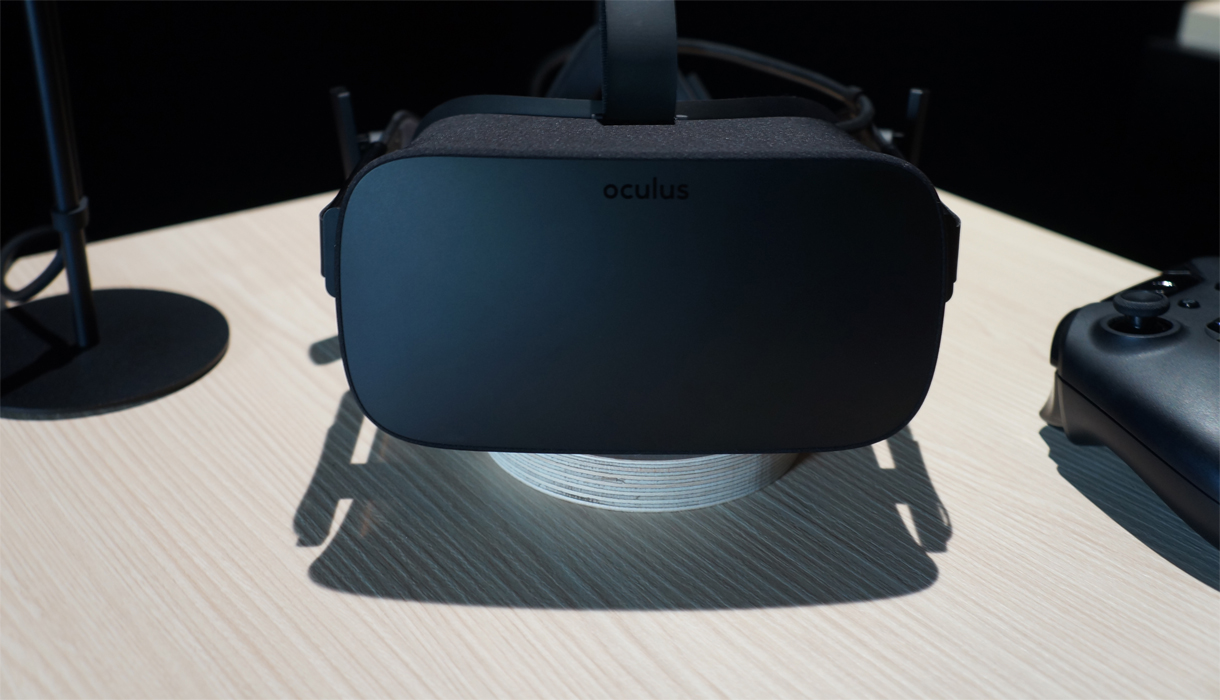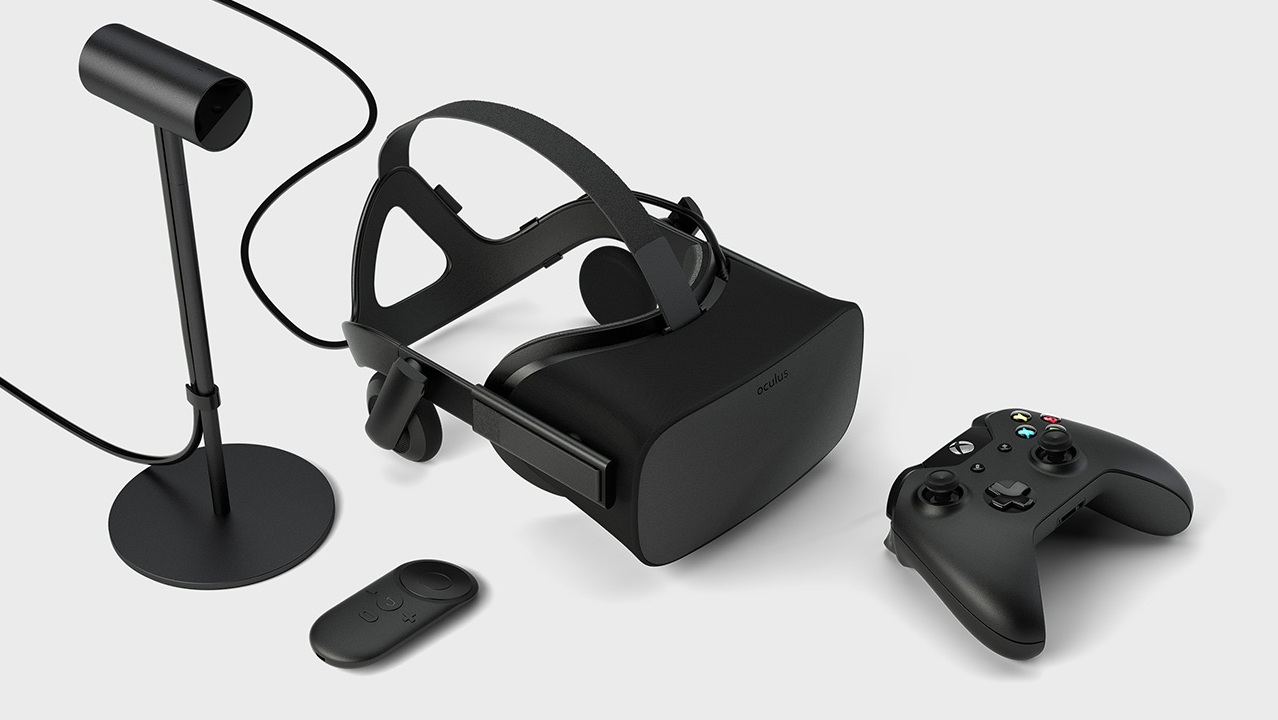The Oculus Rift price hurts now, but ultimately won't matter

Oculus Rift pre-orders are now available for $599. Shoot. I was all set to pre-order one for myself at $350 or so, but I can’t sneak six hundred bucks past the voice that reminds me I’m moving in a couple months and need car repairs (I can sneak it into PC Gamer’s budget with some scavenging, but that won’t be my own personal prize to love and hold). So, it’s a bit disappointing.
But my disapproval only really amounts to: ‘This luxury thing I want costs too much for me to buy right now.’ I will be able to buy it later, and I assume that anyone who owns a high-end PC ($1000 or more) and was planning to throw down $350 today will find a way to save another $300 by the end of the year. Obviously I’d rather pay less and buy it now, but I’d also rather it came with a Titan X. It’s an expensive piece of hardware—we know that now—and expensive hardware is pretty familiar to PC gamers.
The price tag is mainly a blow because years of excitement and expectation (it's nowhere near the price that had previously been thrown around) are now clashing with the reality of our bank accounts. I've been telling you how great VR is ever since I first tried it, and now here it is, six hundred dang dollars—never mind the even crazier prices outside the US. It’s a big letdown for anyone who thought they could afford to jump in this year and now won’t be able to. Unless the HTC Vive is magically half the price, the big Year of VR may not happen until 2017 or 2018. Even more waiting—either for prices to drop, or for us to collectively decide this unproven technology is really worth the cost.

Personal disappointment aside, though, the rest of the concern I’ve seen is all armchair CEOing—speculation over whether or not the product (and by extension, VR itself) can survive a high initial price. I'm not concerned. Oculus and VR are going to be just fine.
Talking to Polygon, Oculus founder Palmer Luckey said they chose to “optimize quality over cost.” I’m inclined to agree with the decision. I’m in love with the idea of VR, and with the real thing finally coming to pass, I’d much rather be priced out at first than buy a system that sucks and helps shelve the whole thing for another 20 years. I want people to be as excited about VR as I am, and I don’t think selling the Oculus Rift DK2 as the consumer model would have the impact the medium needs—it’s been fun for early adopters who knew they were buying a prototype, but that’s not enough to sell the world on a sci-fi contraption you strap to your head. The experience has to work really well, and I hope the consumer version they’ve gone with is a big improvement (for that price, it better be—we’ll see when we get one into the office).
As Kotaku pointed out today, Luckey did say in 2013 that a $600 Rift would be meaningless to the mainstream audience. True enough, VR is temporarily off the table for a lot of people. But here are some other things that I couldn’t afford at first:
- An iPhone (I have now owned three, granted via carrier contracts)
- A desktop LCD display in the 90s (I’m not sure how many I’ve gone through today)
- An HDTV (What other kind of TV would I have today?)
- A 1TB HDD (I think I've had three)
I’d say those things have been successful, and had Apple compromised on the iPhone in that first year, I wonder if it would’ve become such a phenomenon. I’m not defending $600 as an accessible entry point—it’s not—but when I ignore the $350 “ballpark” expectation that was set and wound up two towns away, the price feels reasonable. G-sync and 4K displays can go from $400 to $800 or more—and this is brand new tech with a fancy screen and all sorts of motion detection and latency-reducing R&D. Consumer VR was always going to be a high-ish-end enthusiast product at launch.
Keep up to date with the most important stories and the best deals, as picked by the PC Gamer team.

Anyone can hypothesize potential failure spirals—the high price means adoption isn’t high enough to make money on VR games, developers stop making VR games, adoption dries up, VR goes away forever—but that’s getting ahead of the situation. I’m really not worried. I fell in love with the Rift DK1, which absolutely sucks compared to later prototypes. I think this technology is cool as hell, and whether it stays niche or becomes as big as personal computing itself doesn’t really matter to me: I’m confident it’ll be here for me when I save up the money to buy in. And if it’s not the Rift that I’m into, and it’s the HTC Vive (which I currently am more interested in), that’s fine too. Or maybe it’s something else. I don’t care what big company makes lots of money. I want good technology that I can afford, and I think that’ll happen.
To be fair, we’re definitely used to VR failing—years ago, before Oculus existed, I wrote a big article for another publication detailing all the failures that had me convinced we’d never have proper VR—but I’ve now toyed around with prototypes that completely blow away any consumer headset that’s ever existed. I watched EVE fans experience the very first Valkyrie prototype at Fanfest—on those crappy DK1s—and be dumbfounded. I’ve heard John Carmack talk about having memories of being inside Minecraft. I’ve spoken to Justin Roiland about how he’s more excited to make VR games than Rick & Morty. Too many people are too excited about the potential for VR for it to go away because the first headset has a $600 tag on it.
In a few years we’ll look back and laugh at how expensive it was—the same way anyone today would balk at the price of a CRT monitor in 1993—but we’re not going to be burying it when we do. I think we’ll have some really cool hardware in our hands. I’m tired of waiting, but I’ve already waited my whole life, so what’s another year or so.

Tyler grew up in Silicon Valley during the '80s and '90s, playing games like Zork and Arkanoid on early PCs. He was later captivated by Myst, SimCity, Civilization, Command & Conquer, all the shooters they call "boomer shooters" now, and PS1 classic Bushido Blade (that's right: he had Bleem!). Tyler joined PC Gamer in 2011, and today he's focused on the site's news coverage. His hobbies include amateur boxing and adding to his 1,200-plus hours in Rocket League.

